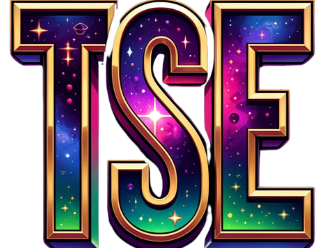The Gospel of Thomas: Mysteries Unveiled Through Shamanic Insights
There is such richness in some of the texts of The Bible and The Nag Hammadi Scriptures. The stand-out piece of scripture has been the 114 sayings of Jesus that comprise The Gospel of Thomas.

Scripture has fascinated me in the last few years of my life. There is such richness in some of the texts of The Bible and The Nag Hammadi Scriptures. The stand-out piece of scripture has been the 114 sayings of Jesus that comprise The Gospel of Thomas.
What fascinated me most is how the sayings mirrored my own awakening journey and how (with reasonable ease and grace), I could interpret them.
If I teleported back to a date before 2014, there would be no way that I could interpret these texts. It has been my shamanic awakening journey to my True Divine Self that has enabled me to have a deep connection to the words.
I invite you to start where you feel called and here are the podcasts where I interpret the sayings. Over time, I'll transcribe the podcasts and put them here on the website.
The Gospel of Thomas. Sayings 1 to 13.
The Gospel of Thomas. Sayings 14 to 27.
The Gospel of Thomas. Sayings 28 to 42.
The Gospel of Thomas. Sayings 43 to 54.
The Gospel of Thomas. Sayings 55 to 67.
The Gospel of Thomas. Sayings 68 to 76.
The Gospel of Thomas. Sayings 77 to 86.
The Gospel of Thomas. Sayings 87 to 94.
The Gospel of Thomas. Sayings 95 to 100.
The Gospel of Thomas. Sayings 101 to 114.
The Gospel of Thomas & The New Testament
The Gospel of Thomas and the New Testament are two distinct collections of Christian texts that offer different perspectives on the teachings of Jesus Christ. While the New Testament is widely recognized as the authoritative source of Christian doctrine, the Gospel of Thomas offers a unique and alternative perspective on Jesus' teachings.
One of the key differences between the Gospel of Thomas and the New Testament is the way in which they present Jesus' teachings. While the New Testament presents Jesus as a teacher who primarily speaks in parables and stories, the Gospel of Thomas is focused on his sayings and teachings. The sayings in the Gospel of Thomas are often presented in a more cryptic and mysterious manner, and they are often open to interpretation.
Another key difference between the two texts is their approach to salvation. In the New Testament, salvation is typically presented as something that is achieved through faith in Jesus Christ and the acceptance of his teachings. In contrast, the Gospel of Thomas presents salvation as something that can be achieved through knowledge or "gnosis." This knowledge is often presented as a secret or hidden wisdom that is only available to a select few.
Despite these differences, there are also many similarities between the Gospel of Thomas and the New Testament. Both texts emphasize the importance of love, compassion, and forgiveness, and both stress the need for personal transformation and spiritual growth. They also share many of the same teachings on ethical behaviour, such as the importance of treating others with kindness and respect.
One notable similarity between the two texts is their focus on the Kingdom of God. In both the New Testament and the Gospel of Thomas, the Kingdom of God is presented as a spiritual reality that is available to those who seek it. This Kingdom is often described as a state of being in which the individual is in harmony with God and with others.
In conclusion, while the Gospel of Thomas and the New Testament offer different perspectives on the teachings of Jesus Christ, they also share many common themes and teachings. While the New Testament is widely recognized as the authoritative source of Christian doctrine, the Gospel of Thomas offers a unique and alternative perspective on Jesus' teachings that can be valuable for those seeking a deeper understanding of Christian spirituality.

